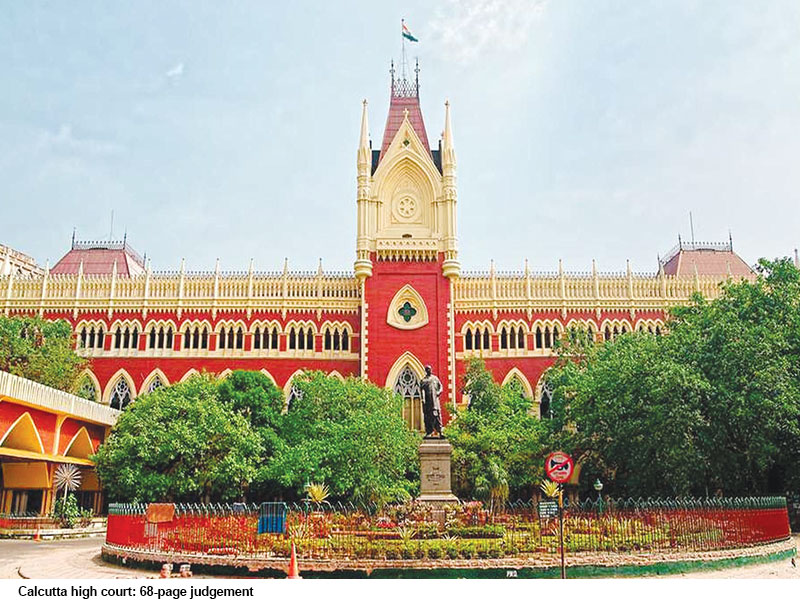
– Baishali Mukherjee (Kolkata)
An October 13 judgement of the Calcutta high court slashing tuition fees payable to private schools with retrospective effect from April this year, has dismayed promoters and managements of West Bengal’s estimated 1,200 private schools, and 300 budget private schools in particular. With all schools shut down since mid-March in the wake of the pandemic, sporadic parents groups and associations, whose members have suffered income and often employment loss, have been agitating for tuition fee concessions and reduction.
In a 68-page order, a division bench of the court directed Bengal’s private aided and unaided schools — including minority institutions — to reduce tuition fees paid or payable for the months of lockdown by 20 percent, but parents must pay all arrears at reduced rates by November 30. The division bench of Sanjib Banerjee and Moushumi Bhattacharya JJ also clarified that the schools can levy only (the reduced) tuition fees, and set a profit cap of “5 percent above expenditure” for 2020-21. This loss can be made up over the next two years, if normal school functioning is resumed by then. Any additional profit should be passed on by way of “general concession or special concession” in individual cases of extreme distress.
Apart from the common 20 percent concession, parents can also apply for further fee reduction by furnishing audited proof of financial distress. Such applications should reach schools by November 15 and managements should communicate their decision by December 31, the court ruled. For two months thereafter, no punitive action can be taken against any student for non-payment of fees. If parents are unhappy with the decision of the school, they can appeal to a committee comprising senior lawyer Tilok Bose and Priyanka Agarwal, the petitioners’ lawyer. The court will hear the matter again on December 7.
Apart from the common 20 percent concession, parents can also apply for further fee reduction by furnishing audited proof of financial distress. Such applications should reach schools by November 15 and managements should communicate their decision by December 31, the court ruled. For two months thereafter, no punitive action can be taken against any student for non-payment of fees. If parents are unhappy with the decision of the school, they can appeal to a committee comprising senior lawyer Tilok Bose and Priyanka Agarwal, the petitioners’ lawyer. The court will hear the matter again on December 7.
While the court’s order has cheered parents of private schools, it has placed the latter, especially affordably priced budget private schools (BPS) struggling with teacher salaries and overheads, in a quandary. Moreover, with sudden demand for high speed Internet connectivity and digital devices, BPS sited in tier II and III towns, unable to afford high tech apps such as Google classrooms and Zoom, are in deep trouble, and have issued pink slips to hundreds of teachers adding to the number of 7.6 million registered unemployed in the state.
Against this gloomy scenario for BPS in particular, educationists in the state are looking forward to implementation of a National Education Policy 2020 proposal to appoint an independent State Sector School Authority (SSSA) with wide powers to supervise all schools — government and private — including the power to regulate the tuition and other fees of private schools.